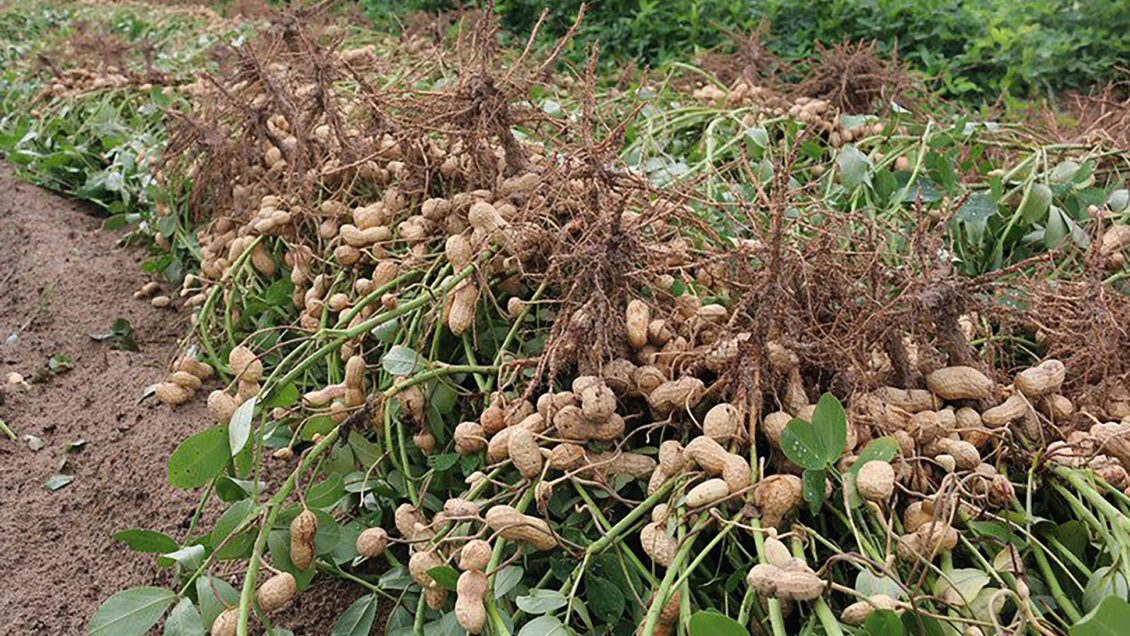
Peanuts are an affordable source of important nutrients but contain protein allergens that can harm some people.
Sachin Rustgi, a molecular breeder at the Clemson University Pee Dee Research and Education Center near Florence, South Carolina, is leading a study funded by the Foundation for Food and Agriculture Research (FFAR) to learn ways to make peanuts less allergenic by reducing the amount of common allergy-causing proteins and increasing the amount of healthy oil (high-oleic) in peanut seeds.
The project focuses on developing peanut genetics with reduced allergen content and an enhanced amount of healthy fat using both conventional breeding techniques and CRISPR (Clustered Regularly Interspaced Short Palindromic Repeats) gene-editing technology. The researchers aim to make more allergy management and oral immunotherapy available for individuals sensitive to peanut allergens.
“New lines developed from this research will benefit people who are sensitive to peanuts,” said Rustgi, principal investigator in the research. “In addition, availability of peanut lines with reduced allergen content will alleviate the need to create and maintain a peanut-free environment and thus could reduce costs associated with managing peanut allergies.”

Much of the research is conducted in the Rustgi Lab, part of Clemson’s Advanced Plant Technology Program housed at the Pee Dee REC. In addition to using conventional breeding methods and CRISPR-Cpf1 gene-editing technology, the researchers also are using sophisticated biochemical and immunological evaluation methods to develop new peanut genotypes that are less allergenic and high in oleic fatty acid.
Other researchers involved in the project are: Sruthi Narayanan, a Clemson University crop ecophysiologist; Jeff Dunne and Ryan Andres, peanut breeders with North Carolina State University; Edwin Kim and Mike Kulis, immunologists with the University of North Carolina; and Shyamalrau Tallury, plant geneticist with the United Stated Department of Agriculture’s Agricultural Research Service.
In addition to being less allergenic and containing higher levels of healthy fat, these new peanut lines are expected to exhibit long shelf-life and tolerance to heat stress, benefiting growers, producers and consumers. Rustgi said the new genotypes will create a healthy choice for farmers in low-income countries who farm for sustenance and don’t have the option to grow other crops.
The researchers are working with producer-driven commodity boards including the South Carolina Peanut Board and the National Peanut Board. The reduced-immunogenicity, high-oleic peanut genotypes and resources developed during this project will be available free to public peanut breeding programs in the United States and abroad. This project is expected to continue through 2025.
Saharah Moon Chapotin, FFAR executive director, said this research offers hope for a solution to peanut allergy.
“Current remedies for peanut allergy target the human response to the allergens, not the peanut allergens themselves,” Chapotin said.
Peanut allergy knowledge
Peanuts are an affordable source of proteins, health-promoting fatty acids, antioxidants, vitamins and minerals. However, peanuts also are among the eight primary sources of food allergies recognized by the United States Food and Drug Administration and, along with tree nuts, are responsible for 90% of allergy-related fatalities.
Studies show peanut allergies affect about 9.6 million children and adults in the United States. During the past two decades, peanut allergy diagnoses rose from 0.4% in 1997 to 2.9% in 2021. Experts say this number is escalating. Raw peanuts and derived products lead to various allergic responses, the most common being immediate-onset anaphylaxis.
Sixteen proteins in peanut kernels have been identified as allergens. Among them, four proteins are classified as major allergens.
In addition to bearing proteins, the peanut is a primary oil source. Peanut oil comprises 20% saturated fatty acids, which have been associated with increased serum low-density lipoprotein cholesterol levels and the incidence of cardiovascular disease (CVD).
The United States is the fifth-largest peanut producer in the world. Besides being locally consumed, a large proportion (499,685 metric tons in 2021) of peanuts is annually exported to Canada, Mexico and European Union countries. Unfortunately, these countries also reported a high peanut allergy and CVD prevalence.
Peanut allergy currently requires the complete exclusion of peanuts from a person’s diet. However, avoiding peanuts, other cross-reacting tree nuts and legumes limits individuals’ options to obtain vegetable proteins. Also, totally avoiding peanuts is not achievable because of the presence of peanut in processed foods and unintended contamination. Given peanuts’ economic and nutritional importance, the researchers say it is worth correcting associated health concerns.
In addition to peanut, Rustgi and his team also are testing many varieties of wheat to find ones naturally less immunogenic than others. Their hope is these low-immunogenicity varieties can be bred with crop varieties that have desirable traits, such as high yields or pest resistance. The goal is to develop reduced-gluten varieties that can be commercially grown.
Foundation for Food and Agriculture Research
The Foundation for Food and Agriculture Research (FFAR) builds public-private partnerships to fund bold research addressing big food and agriculture challenges. FFAR was established in the 2014 Farm Bill to increase public agriculture research investments, fill knowledge gaps and complement USDA’s research agenda. FFAR’s model matches federal funding from Congress with private funding, delivering a powerful return on taxpayer investment. Through collaboration and partnerships, FFAR advances actionable science benefiting farmers, consumers and the environment.
Get in touch and we will connect you with the author or another expert.
Or email us at news@clemson.edu
